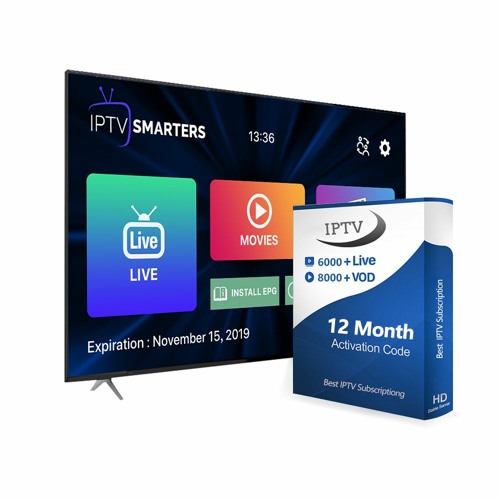The Internet Protocol Television Revolution: Transforming the Manner That We View

In recent years, the way we consume television has undergone a huge transformation. Traditional cable and satellite services are gradually being surpassed by a new technology known as IPTV, or Internet Protocol Television. This innovative approach to broadcasting gives viewers an assortment of channels and on-demand content sent straight over the internet. As www.iptv-pro.co seek flexibility and personalization in their viewing habits, IPTV is becoming as a game-changer that caters to modern demands.
So, what is IPTV and how does it operate? At its essence, IPTV uses internet protocols to relay television signals, enabling users to watch programs through their internet connection rather than depending on conventional satellite or cable infrastructure. This shift not only improves the viewing experience but also provides a world of possibilities, such as interactive features and access to a vast library of content. In this article, we will examine the nuts and bolts of IPTV, exploring its functionality, benefits, and the impact it has on the next phase of television viewing.
What’s IPTV?
IPTV, refers to a method which delivers TV content via the internet rather than traditional methods such as cable and satellite TV. Through the use of internet protocols, IPTV enables users to watch shows, movies, and live broadcasts directly to various devices, providing a convenient and on-demand viewing experience. This change in broadcasting is transforming how audiences consume media, catering to the growing interest for personalized content delivery.
In contrast to traditional broadcasting, which sends signals through radio waves and cables, IPTV sends video content through a broadband internet connection. This provides smoother streaming and improved quality video, as well as the ability to access a variety of channels and on-demand services. It can be used through various devices including smart television sets, computers, tablets, and smartphones, making it an accessible option for many viewers.

One of the main advantages of IPTV is the interactive features it provides. Users can stop, rewind, and record live television, access video on demand, and even take advantage of additional functionalities such as electronic program guides and personalized recommendations. This engagement enhances the viewing experience and allows users to take control of their entertainment choices, signifying a major evolution in how we watch television.
Benefits of Internet Protocol Television
One of the main benefits of IPTV is the flexibility it provides to viewers. Unlike traditional cable or satellite providers, IPTV allows you to watch your favorite shows and movies on a variety of devices, such as smart TVs, tablets, and smartphones. This means you can watch content whenever and wherever you choose, without being restricted to a specific location. Additionally, many IPTV services offer the ability to pause, rewind, or record live television, improving the overall viewing experience.
IPTV also offers a vast selection of channels and content. Users can access countless of channels from around the world, including niche programming that may not be found on standard TV. This extensive library includes everything from international news to obscure films, catering to diverse interests and tastes. The ability to tailor channel packages according to personal tastes means users can design their own viewing experience personalized to their likings.
Affordability is another major benefit of IPTV. Many IPTV companies offer subscription models that are often more cost-effective than traditional cable television packages. With less long-term contracts and no hidden fees, viewers can enjoy a more transparent pricing structure. Furthermore, many services offer streaming content that can reduce the need for additional subscriptions to different platforms, ultimately leading to savings for consumers.
Prospects of IPTV Systems
The outlook of IPTV solutions is set for major advancements, reflecting the rapid evolution of media consumption. As online infrastructure advances globally, more users will have access to fast internet, allowing IPTV platforms to deliver quality content seamlessly. This enhanced connectivity will not only enhance user interactions but also encourage service providers to commit in new functions and multiple content choices.
Moreover, the addition of artificial intelligence and ML into IPTV systems is expected to change how viewers interact with content. Tailored recommendations, smart scheduling, and adaptive streaming features will create a more immersive and tailored viewing situation. As AI methods continue to advance, users can look forward to more easy-to-use interfaces that predict their likes, enhancing overall satisfaction.
Additionally, the growth of real-time and instant sports streaming will play a key role in shaping the prospects of IPTV. As interest for live sports content grows, providers will pursue exclusive licensing agreements and alliances to capture viewers. This movement will not only lead to a more competitive market but also push IPTV platforms to develop continuously, offering viewers a vivid and immersive sports-watching event that standard television cannot rival.
